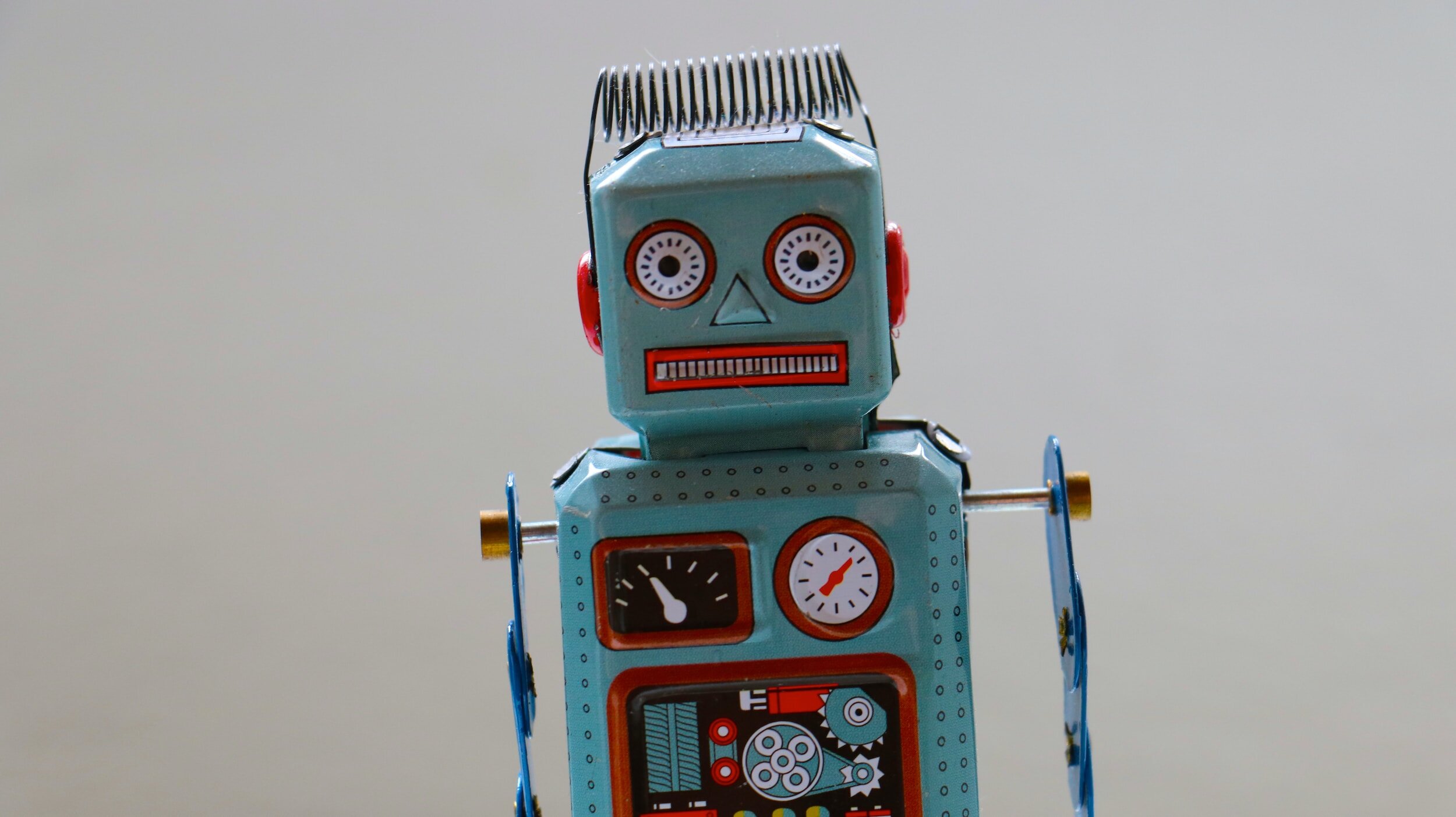How to Tell the Difference Between AI and Human Content
The robot voice inside my head.
Something is going on. I am stuck with an AI-generated robot voice in my head. It randomly starts internally narrating things I read online, and it's driving me nuts. Social media is a minefield.
Or maybe it's not so random.
Maybe I can detect artificially intelligent content with my innate human intuition and it is causing the fake-friendly-robot voice to kick in.
Oh yeah, Artificial Intelligence. I see you. I hear you. Which raises questions about AI and authenticity.
Should AI get the credit for AI stuff?
So, here we are: Artificially generated content is mainstream and we’re using it with gleeful abandon.
AI has changed all our lives because it's undeniably useful, and we’re lazy. But where are the lines between wisely making use of AI… and using AI to present a fake version of ourselves?
For example, is it okay to punch an instruction into Chat GPT 4, copy-and-paste the result and pass it off as your own work/advice/top tips on social media?
Many self-styled social media "gurus" ain't writing shit right now. They're AI-botting it. And does anyone care? We damn well should if they're passing it off as original thought. I'm bored with lazy, sensationalist content for the sake of it.
If (or when) AI-derived content is watermarked, half the personality-less drivel we're currently subjected to could… cease. Imagine that.
Artificial stupidity. We should give a damn.
While it should be a force for good, as artificial intelligence generatively feeds itself, we should give a massive toss about the spread of misinformation and dumbing down our innate creativity. If we sit back and accept work created by scraping the internet, will we become artificially stupid by default?
If we don’t question how we use AI, we are sleepwalking into accepting inauthentic — and potentially inaccurate — information.
Here come your friends, the artificial intelligence checkers.
If you want to know if what you're reading is authentic, AI checkers are gaining huge traction. OPEN AI, the company behind Chat-GPT, launched and then shut down OpenAI for its low accuracy rate. Depending on who does the testing, Copyleaks and WinstonAI fare much better.
Outright plagiarism is much harder to check, so run it through a checker. Grammarly is my go-to.
AI is plagiarism by default. You have been warned.
Artificial creativity upends the art world.
Wrap your head around this Artificial Intelligence quandary which has shaken the art world:
Way, way back in ye olde 2022, the game designer Jason M. Allen won the top prize at the Colorado State Fair in the Digital Art category.
His stunning, fantastical work (above), Théâtre D'opéra Spatial, was created using the Midjourney.ai bots to generate the image from text prompts.
To quote Midjourney.ai : "No specialised hardware or software is required".
Stoking the debate, the work was printed on to traditional canvas rather than delivered in its pure form on a screen.
The art community was divided, left questioning what being an artist even means any more. Jason M. Allen staunchly defended his prize, saying,
"Someone had to be first".
But is it art? Does it require artistic skill? Is it… cheating?
Mr. Allen is unapologetic. He laboured for over 80 hours and 900 iterations to complete the digital version of Théâtre D'opéra Spatial.
Artists everywhere are still choking on their turpentine.
Michelangelo and the Sistine pixels.
Here's the rub. Although the AI image was printed onto canvas in the style of a traditional painting, Michaengelo himself could not have produced a picture of that complexity with a paintbrush in 80 hours — but he could have saved himself 4 years’ of osteopath bills if he'd instructed Midjourney to create the frescoes in the Sistine Chapel.
Would that make Michaelangelo a conductor rather than an artist?
An "ideas person" with a keyboard?
A driverless car in the Dakar Rally?
A small win in the fictional Humanity versus AI case raging in my head is that the US Copyright Office will not authorise Midjourney or AI pieces copyright.
Not to take anything away from Mr Allen’s creative vision, but yay, fist pump, because we are only milliseconds away from AI generating similar visions all by itself.
Jason M. Allen has been busy with a pencil.
As founder of his company, Art Incarnate, Mr. Allen has been on quite the journey since the Colorado furore erupted.
He is putting up a valiant fight against the US Copyright Office's decision.
In September 2023, he spoke at the UNESCO Digital Learning Week in Paris.
That same month, Mr. Allen released limited edition prints of Théâtre D'opéra Spatial on museum-grade paper.
But get this:
He personally signed and numbered each print with an archival pencil.
In the end, he wants his hand-made human mark on the prints. Not a digital one.
Now, ain't that rather…quaint?
How to use AI with integrity.
Do you really need to be told?
Nah. You don't, but for argument's sake:
Use AI to do the grunt work, and then edit/adapt/inject your lived experience into whatever you're writing.
Don't cheat by passing 100% AI off as your own words.
Don't accept cheating in your team.
If writing is not your bag and AI feels like disingenuous bullshit, you need a human being on board.
Press the button and let’s arrange to talk one-to-one, like real people:
Thank you for reading. Me and my original words appreciate your time.




